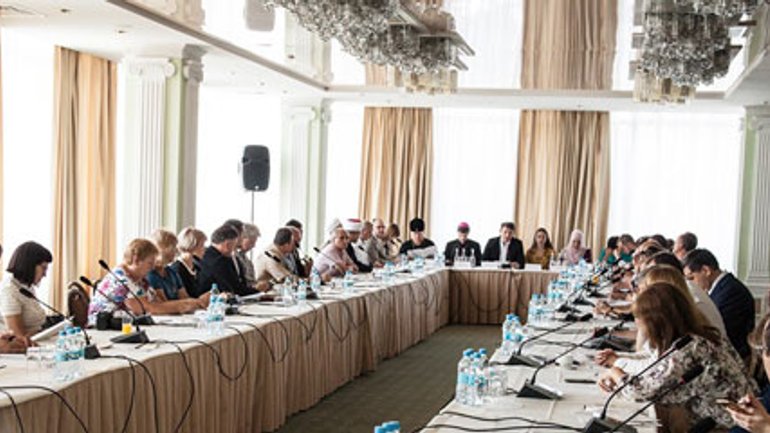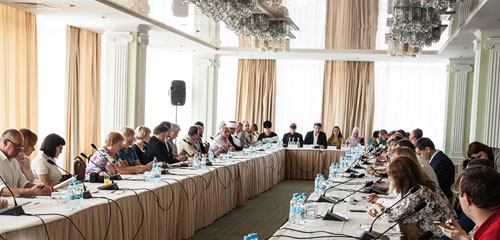Religious and community leaders to work together towards liberation of Ukrainians from prisons of Russia, Crimea and Donbas

Religious and public figures, human rights defenders and relatives of hostages and prisoners agreed to cooperate together to release Ukrainian citizens who are illegally detained in Russia and in occupied Crimea and Donbas as a result of Russian aggression against Ukraine.
Discussion and development of practical steps for further interaction took place during the second meeting of a round table on religious freedom in Ukraine which was held on July 25, 2019 in Kyiv, according to the Institute of Religious Freedom.
This time the meeting was devoted to the theme "Uniting the efforts of civil society for the liberation of Ukrainian citizens who are illegally deprived of their liberty in Russia, occupied Crimea and Donbas". The round table was organized in partnership with the Institute for Religious Freedom and the Center for Civil Liberties with the support of Union of Councils for Soviet Jews.
The event was attended by about 80 participants, among them: representatives of public organizations that protect the interests of ATO participants, relatives of prisoners, political prisoners, relatives of missing and dead, as well as religious leaders, human rights activists, experts, representatives of the National Police of Ukraine and the Office of the Verkhovna Rada Commissioner for Human Rights, representatives of embassies and international organizations.
The result of the discussion was the adoption of the "Resolution on illegally detained citizens of Ukraine on the territory of the Russian Federation, the occupied Crimea and Donbas" which provides a number of practical recommendations for both the leadership of the Ukrainian state and the international community. They are as follows:
Demand from the Russian Federation to stop political persecution and immediately release all Ukrainian citizens imprisoned for political reasons in Russia and the occupied Crimea, prisoners of war and civilian hostages in the occupied Donbas, as well as 24 Ukrainian POW sailors, and until that moment demand respect for their rights and freedoms, in particular freedom from torture, the right to an effective remedy, the right to a fair trial and other human rights.
Similar demands were put forward by the participants of the round table on the protection of the rights of people imprisoned by the decisions of the courts before the occupation and who still remain in the occupied territories, and we demand that they be immediately transferred to Ukraine.
Appoint a special Representative of the European Union on the occupied Ukrainian territories of Crimea and Donbas. The Representative's scope of powers and responsibilities include continuous monitoring of the situation of human rights violations in the occupied Ukrainian territories of Crimea and Donbas, and periodic public reporting to the Council of the European Union and the European Parliament on the state of affairs.
The Resolution also calls on the international community to put forward the requirement to the Russian Federation to grant unimpeded access to the occupied Ukrainian territories of Crimea and Donbas and to the people held in captivity for international intergovernmental organizations, in particular, the UN Human Rights Monitoring Mission, the OSCE mission to assess the human rights situation in Crimea, the Council of Europe Commissioner for Human Rights, other Council of Europe Convention and institutional mechanisms, and the like, as well as for international humanitarian organizations, in particular, the International Committee of the Red Cross.









